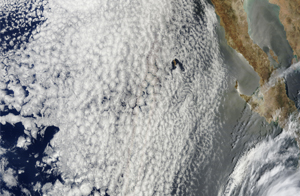NETWORK & COOPERATION
©Shutterstock
The European Centre for Medium-Range Weather Forecasts (ECMWF) is an inter-governmental organisation at the forefront of scientific collaboration, with a primary mission: to develop medium-range weather forecasting capabilities. Established in 1975, the Centre brings together experts from across Europe and beyond to decode Earth’s intricate systems and drive weather prediction quality for societal benefit. Led by General Director Florence Rabier, ECMWF has its headquarters in Reading and sites on Europe mainland in Bonn and its supercomputer facilities in Bologna. ECMWF’s strong ties with member states ensure both financial support and scientific guidance, underpinning its mission to provide vital global weather predictions to safeguard lives and infrastructure.
The CESOC-ECMWF partnership traces its origins back to the establishment of CESOC in October 2020. CESOC was founded with a primary goal: to support Bonn’s bid to host ECMWF’s new premises. This collaboration was instrumental in the successful realisation of ECMWF’s location in Bonn, Germany. Notably, this partnership also led to the creation of four STEP UP! fellowship positions in collaboration with the German Weather Service (DWD), strengthening the ties between research and practical applications. A memorandum of understanding, signed in October 2022, underlines the close partnership also for future activities, such as joint projects, education and trainings as well as exchange of personnel and jointly published research results. Further plans are yet to be developed.
STEP UP! Fellowship programme 2023/24
Within the framework of the STEP UP! Fellowship programme, coordinated by the German Meteorological Service (DWD), four early career scientists started at the ECMWF site in Bonn between January and April 2023. Paolo Andreozzi, Katerina Anesiadou, Luise Schulte and Florentine Weber will be working for initially two years on their respective projects (described below) in close contact with supervisors from ECMWF as well as mentors from CESOC. Through this bridge, CESOC will provide ECMWF and the fellows with links to local research infrastructures and large collaborative research projects. An article about the programme and the individual topics can be found in the ECMWF spring newsletter 2023.
Read more about their Life as a Fellow – The Blog
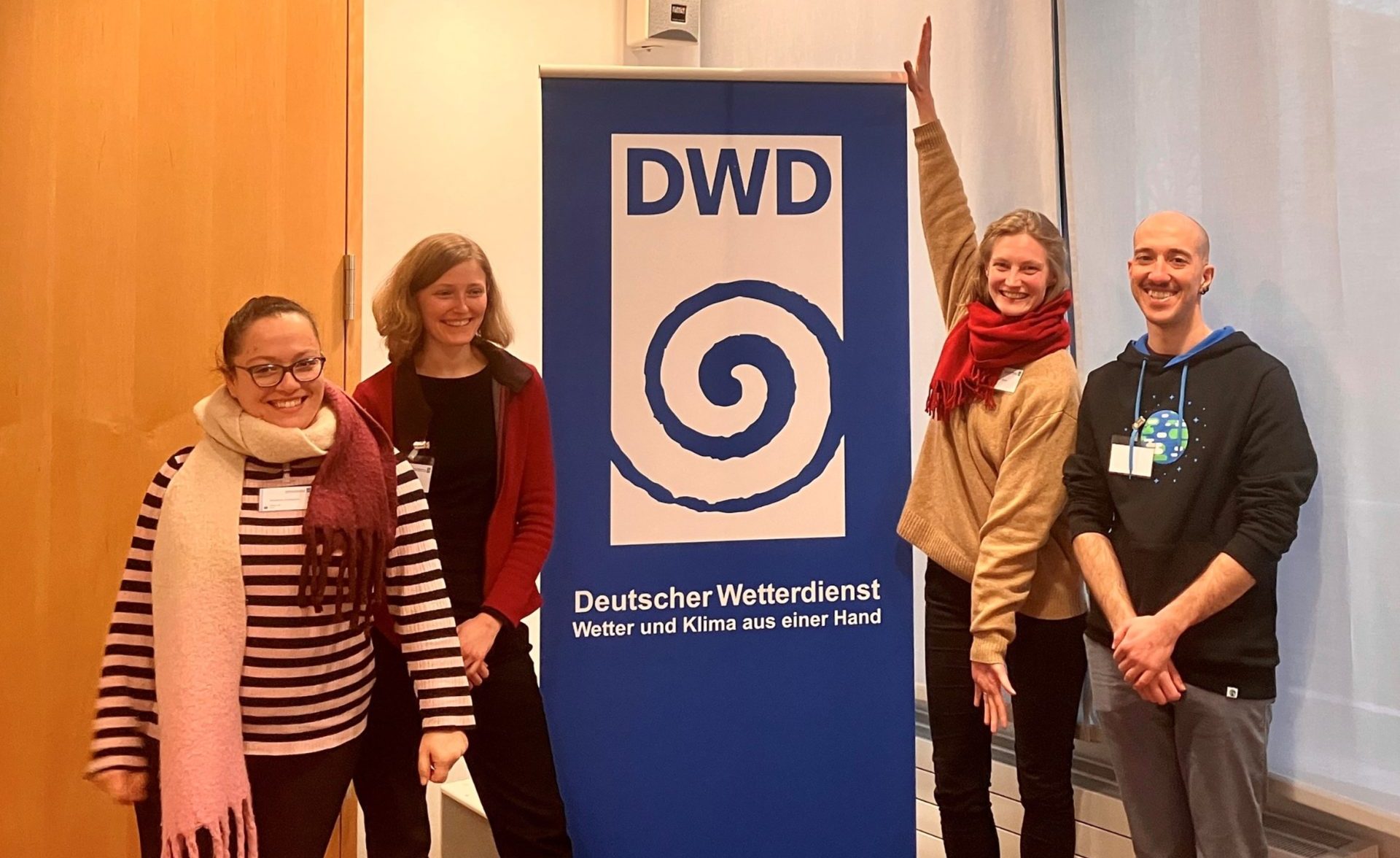
Selected fellows of the STEP UP! Fellowship Programme 2023/24 during the Kick-Off Event at DWD in Offenbach, end of January. From left: Katerina Anesiadou, Luise Schulte, Florentine Weber, Paolo Andreozzi.
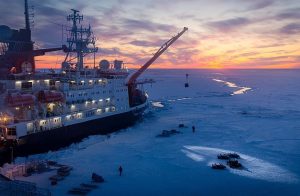
Modelling water in Arctic clouds
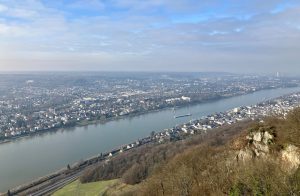
Modelling the regional water cycle and temperature in urbanised areas
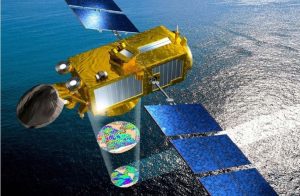
Use of altimeter measurements in a coupled data assimilation system
